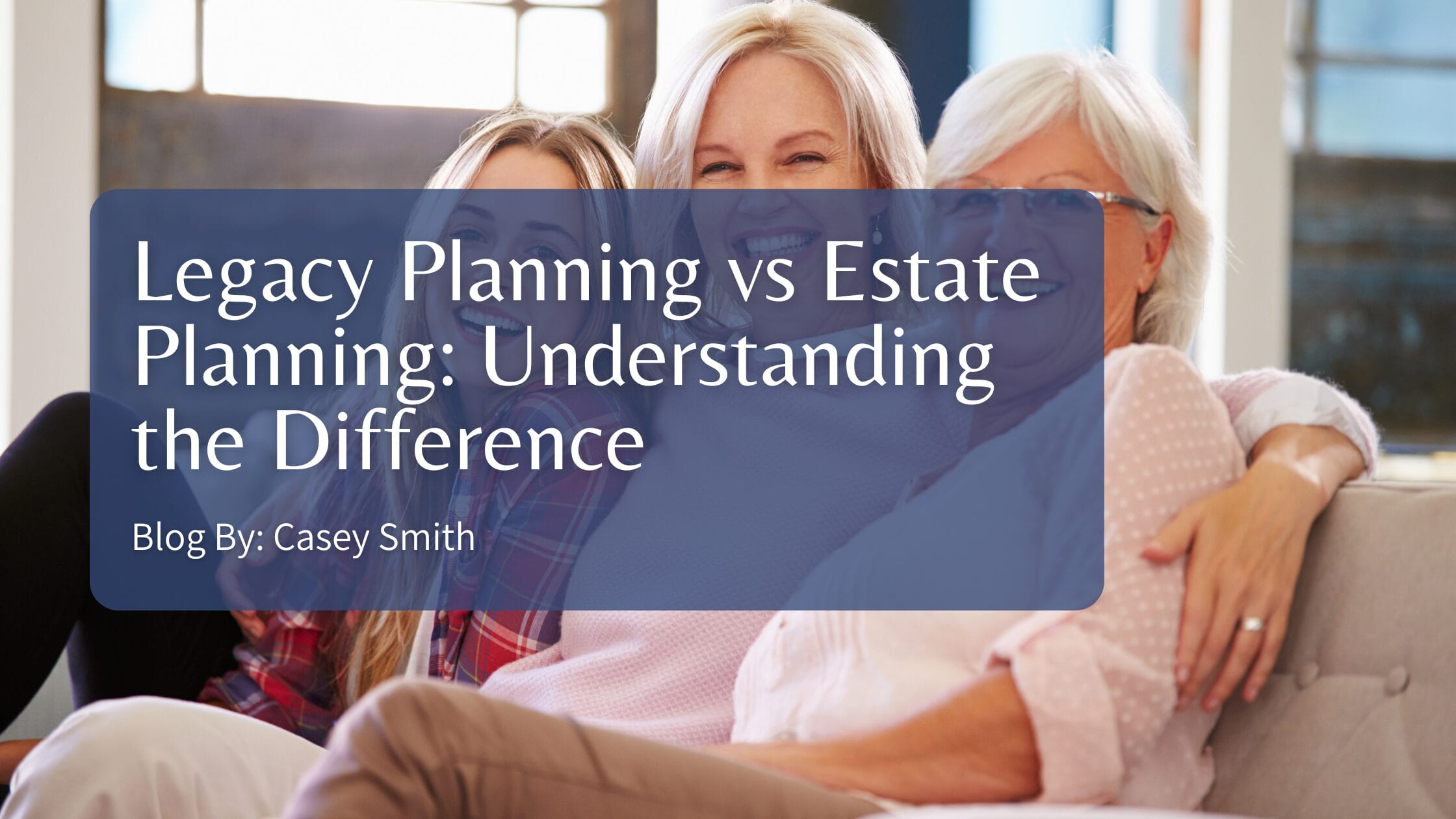Legacy Planning vs Estate Planning: Understanding the Difference

When preparing for the future, terms like “legacy planning” and “estate planning” often come up. While they might seem interchangeable at first glance, they actually encompass different scopes and intentions. Both are crucial in ensuring that your wishes are honored and your loved ones are taken care of after you’re gone, but they approach your life’s work and assets from distinct angles. Let’s delve into the differences between legacy planning and estate planning to help you understand which approach—or combination of both—might be right for you.
What is Estate Planning?
Estate planning is a critical process focused on the management and distribution of your assets in the event of incapacitation or death. It’s a foundational step in ensuring that your assets are handled according to your wishes, minimizing legal complications and taxes for your heirs.
Essential Components of Estate Planning:
- Wills and Trusts: These documents are pivotal in dictating the distribution of your assets, with trusts offering additional benefits like probate avoidance and tax reduction.
- Power of Attorney: This designates an individual to make legal and financial decisions on your behalf if you’re unable to do so.
- Healthcare Directives: Ensures your medical wishes are respected by including a living will and healthcare power of attorney.
- Guardianship Designations: Important for naming guardians for minors or dependents under your care.
- Beneficiary Designations: Directs specific assets, such as life insurance and retirement accounts, to your chosen beneficiaries.
What is Legacy Planning?
Legacy planning extends beyond the financial, focusing on the personal legacies you wish to leave behind. It’s about the impact you want to make on your family, community, or even the world, encompassing both tangible and intangible assets. Legacy planning is about ensuring that your values, stories, and life lessons are preserved and passed on in hopes of making a lasting impact.
Key Aspects of Legacy Planning:
- Ethical Will/Legacy Letter: A personal document sharing your values, experiences, and life lessons.
- Charitable Giving: Establishing avenues for philanthropy that reflect your passions and values.
- Family Meetings: Facilitating discussions about your wishes and the reasoning behind your decisions.
Integrating Estate and Legacy Planning
While estate planning and legacy planning have distinct focuses, they are complementary processes. Effective estate planning provides a solid foundation for legacy planning by securing the financial aspects of your family legacy. Conversely, legacy planning adds depth to estate planning by incorporating your values, beliefs, and aspirations into the mix.
Choosing between estate planning and legacy planning isn’t an either/or decision. Instead, consider how each can serve your unique needs and goals. Start with a comprehensive estate plan to address the practical aspects of asset distribution and healthcare decisions. Then, layer in elements of legacy planning to ensure your values and life lessons are part of your family and philanthropic legacies.
Have questions? Feel free to contact us.
Casey Smith
President, Wiser Wealth Management
Share This Story, Choose Your Platform!
Wiser Wealth Management, Inc (“Wiser Wealth”) is a registered investment adviser with the U.S. Securities and Exchange Commission (SEC). As a registered investment adviser, Wiser Wealth and its employees are subject to various rules, filings, and requirements. You can visit the SEC’s website here to obtain further information on our firm or investment adviser’s registration.
Wiser Wealth’s website provides general information regarding our business along with access to additional investment related information, various financial calculators, and external / third party links. Material presented on this website is believed to be from reliable sources and is meant for informational purposes only. Wiser Wealth does not endorse or accept responsibility for the content of any third-party website and is not affiliated with any third-party website or social media page. Wiser Wealth does not expressly or implicitly adopt or endorse any of the expressions, opinions or content posted by third party websites or on social media pages. While Wiser Wealth uses reasonable efforts to obtain information from sources it believes to be reliable, we make no representation that the information or opinions contained in our publications are accurate, reliable, or complete.
To the extent that you utilize any financial calculators or links in our website, you acknowledge and understand that the information provided to you should not be construed as personal investment advice from Wiser Wealth or any of its investment professionals. Advice provided by Wiser Wealth is given only within the context of our contractual agreement with the client. Wiser Wealth does not offer legal, accounting or tax advice. Consult your own attorney, accountant, and other professionals for these services.





